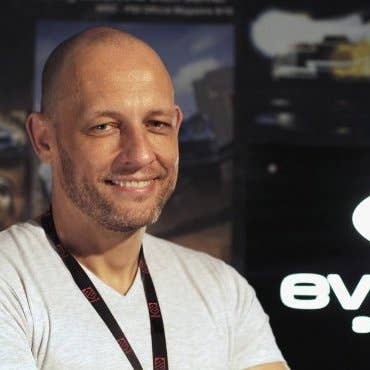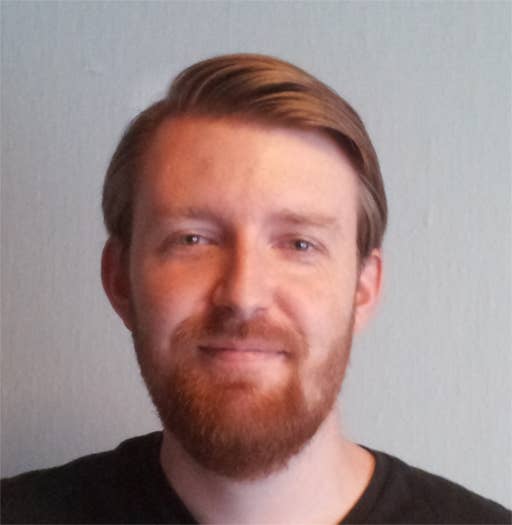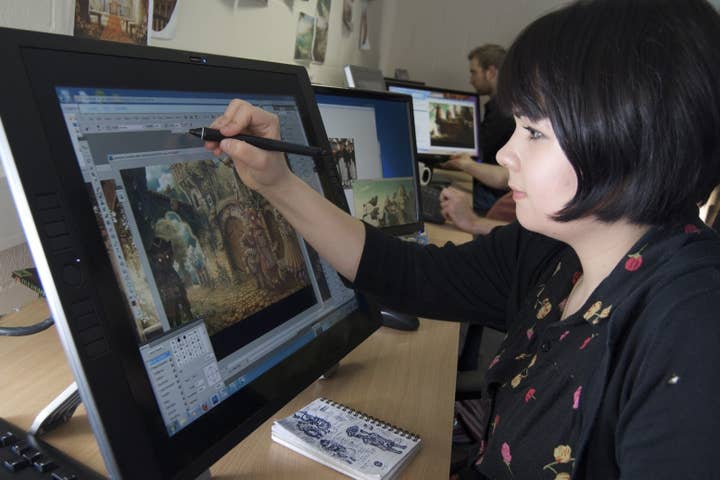What employees want and why
Looking to grow your team? Four job hunters explain what will make them say yes to your offer
In this day and age finding the right candidate for your role is only half the boss battle, the hard part is convincing them to accept your offer and become part of your company.
GamesIndustry International spoke to a wide range of candidates to get a detailed insight of what they're looking for in the current job market, what makes them say yes to a role and more importantly, what's made them say no in the past.
James Hans
My name is James Hans and I have been in the industry for about 15 years working predominantly at EA Games; Criterion and then Ghost on the Burnout and Need For Speed franchises. I chose the games industry because from an early age my eyes had been opened to the possibilities of computer graphics and mixing this with my love of playing games on a TRS-80. Knowing that I wanted to make this my career I studied Computer Visualisation & Animation at Bournemouth University, and shortly after graduating I joined Criterion Games working on 'Shiny Red Car' as an artist which became Burnout. As we completed each game my role progressed through art, technical art and into production and management. My most recent role over the past few years has been that of a Producer and then a Development Manager.

I would like a Producer or Development Manager role; though I don't necessarily want to limit myself as a new challenge would be fresh and exciting. Today with smaller more agile development teams you need to be more hands on and I can utilise my previous experience as an artist and technical artist to cultivate an idea for example, and that can only benefit me. I am problem solver at heart and thrive on making things happen and bringing the right people together to solve a problem, a skill used throughout my career.
There are many contributory factors when deciding upon a position, and some take on more priority than they ordinarily would if one of these factors really stood out. The game I work on is really important, but if there is an amazing, vibrant and talented team to work with on a game that would have been on a title I would not have previously considered then it would be the team that would be the attraction over the game because when you get a good thing you sum to more than your parts. When I started we worked in a small dynamic team and there is a great energy there and decisions can be made quickly; that's really powerful. It's also nice to know everyone at the company. Location and security are important too as I now have a young family as of this year!
"I prefer to measure on the basis of your CV got you through the door and the interview is your chance to demonstrate fit and potential"
Yes; if it's the right applicant otherwise not really as the applicant needs to fit with the terms of the job. Today employers tend to write a job description that seeks the perfect candidate that excels in most disciplines and is a great team fit; I'm guilty of this myself. Whilst these candidates do exist they are rare. I remember a TA whose pencil sketches looked photographic, and he could code well in C++ too; not everyone is like this and positions remain unfilled because of it. I prefer to measure on the basis of your CV got you through the door and the interview is your chance to demonstrate fit and potential. It's entirely possible that the candidate who does not quite fit the role today cannot be grown into and beyond it. Today though it is an investment not many companies will take.
Yes. When I first applied for a role as an artist at Criterion I interviewed at 3 other studios and they all offered me a position at the same time so I was able to choose based upon the role, team, location and package and pick the best for me at the time. Today I would take the decision more methodically as it does really depend upon the situation. You might not always be able to have the perfect combination of factors that would make you automatically accept a job that would suit perfectly and so you need to be adaptable. I see this as something that you can turn into a positive situation to grow rather than see them as second best if you are unable to achieve the perfect job offer.
Jonathan Burroughs
I've been a game designer and writer for over 10 years. My first design role was scripting levels for Battlefield 2: Modern Combat at Electronic Arts' studio in Warrington. Prior to that I worked as a contract QA for EA in Chertsey.
As a designer I've had a couple of opportunities to work on new technology, such as developing for the at-the-time unreleased Wii on the Nintendo project Battalion Wars 2. I also held a principal level position at Rare working on Kinect launch title Kinect Sports for Microsoft Game Studios.
My most significant writing credit is leading the game narrative on The House of the Dead: Overkill for Sega whilst at Headstrong Games. Overkill is a career highlight, a project which was a real pleasure to work on and which, for a lightgun game in 2009, garnered surprising praise. At the time Nathan Grayson described the story as comparable to Bioshock, Portal and the work of Tim Schaefer, which was very kind of him. In fact Valve's Eric Wolpaw, whom I admire enormously, was quoted in Gamasutra as calling it hilarious. The intervening 5 years may have given them both pause for thought, but at the time, when I was just starting out as a game writer, it was encouraging to hear.
In addition to writing and gameplay scripting, my roles have encompassed responsibilities as varied as hands-on level design and technical design, coordinating outsourcers, public speaking, pitching concepts and directing VO sessions. I have experience of the full product lifecycle, from concept discovery, to pre-production, to production and post-release responsibilities such as localisation and PR.
Most recently I have been working as a senior designer for DeepMind Technologies in London.
I want to lead. I've lead feature teams (small teams within a larger development team, focussed on specific mechanics or systems, such as character combat or a game's front end) before and have experience reporting to senior stakeholders and product owners. The next big challenge I'm looking for is managing my own design team.
"Business philosophy of the employer and the character of the people you'll be working with are the most important factors"
I want to develop a design team culture and take the opportunity to enact my ideas of how an efficient, modern design team should be run. In my experience game designers are sometimes perceived as problem generators rather than problem solvers. Good design isn't individual designers coming up with unique creative ideas in isolation; it's about effective collaboration. Involve as many sources for ideas as possible, to arrive at the best possible solution to a problem, high to low level. Be it an initial pitch for a client or a technical specification for a specific mechanic.
Choosing a role is inevitably a balance of a variety of factors, particularly if you have financial commitments or ties to a particular location. But all things being equal the business philosophy of the employer and the character of the people you'll be working with are the most important factors. If your coworkers are like-minded, considerate, professional people and your employer trusts you to own your role and actively helps you develop your skills, then any project, no matter how humble or unprestigious, can be a pleasure to work on day to day.
That being said, as no doubt with any creative industry, working in games carries the risk of being exploited due to the enthusiasm and fandom it fosters. Expecting an employee to bring passion to their role is fine, but if that passion is expected to translate into accepting unlimited, unpaid overtime without question, then that is exploitation. And a prospective employee should never feel ashamed choosing a job because it pays bills better, makes the school run more manageable or allows you to stay in touch with your community or support network.
Game designers invariably face a tension as they advance and their career path bifurcates into more specialisation or taking on more management responsibilities. As freely-available development tools become ever easier to get hold of, it's going to be increasingly hard for a company to justify hiring new designers who don't have skills in another discipline, such as 3D art or programming. If you want to distinguish yourself as a designer, being able to demonstrate team management or game production skills or an aptitude for more technical hands-on work, is going to be a necessity.
On a broader note, the wider games industry is still in a troubling place in how it treats the welfare of it's workers. My hope is that positive forces like organised labour unions can bring about better employee protection and industry standards. Such as making sure everybody who works on a project is appropriately credited. Or enforcing more consistent policies for awarding royalties and residuals. And awarding them for the lifetime of the product, not withholding them if a developer moves to another company. Progress also needs to be made resisting practices like unpaid overtime and unfair terms of employment, such as rolling short term contracts or forcing staff to work as self-employed contractors
As our workforce grows older and more diverse its going to be ever more important that employers can accommodate the needs of parents, employees with disabilities, with physical and mental illness, those with mortgages to pay, and those who are reaching retirement age. The dominance of the cis white male thirtysomething fanboy developer is rapidly coming to an end and in its place a new, more inclusive and innovative games industry will hopefully emerge.
"The dominance of the cis white male thirtysomething fanboy developer is rapidly coming to an end"
Yes. It's a cliche, but any interview really is a dialogue between the interviewer and the interviewee. And in that respect the interviewer is as much on show as the candidate. It's the employer's responsibility to demonstrate that when they put your knowledge and talents to use to make their money, they will do so with respect and empathy. If an employer has unrealistic or vague expectations about work / life balance, if they don't take employee welfare seriously or if they don't offer you sensible contract terms, they don't deserve you. Go elsewhere.
On a different note, I recently chose to reject a job offer, not because the terms were unsatisfactory or I had issue with the company or people - quite the contrary was the case - but because in the course of interviewing with them I became aware I wanted to take an entirely different direction with my career. And it took the interview process for this to crystalise for me. I was worried that the company would feel I had been wasting their time and did my best to explain my thinking in my rejection letter. But they were understanding and wished me the best for the future.
And it must be better for both parties that an employee be as comfortable and satisfied in their role as possible. Empowering you to do your best work is your employer's ultimate responsibility.
Col Rodgers
Most recently, I was a Game Director for SONY on Driveclub. Prior to that, I was the Chief Game Designer on GRID 2 for Codemasters. I've worked in the games industry for 19 years, and have a very broad skill set - Designer, Producer and Coder. In my spare time I'm generally working on new concepts, as my whole life is about the creativity of making great games.
I'm looking for something with a team who are passionate about what they're doing, and would appreciate the experience and insight I could bring to any role in their organisation. I don't mind wearing many hats at the same time, as it all adds to the richness of the work experience. I love games which do something different - Journey, Unfinished Swan, Fez, Rez etc. There are far too many FPS's in the world these days.

Key factors for me are a) The fact that the people who work there must love what they do - making games is more than a job, it's a vocation and b) I love teams who aren't just out to make money by doing something that has been done before - this is a creative industry with so many intelligent people in it that it should be more than just a business. Say something new to the world. Make people think. Give them a new experience.
Even though we're living in great times with so much opportunity, it's much more difficult now than it was back in the day. So many people suffering due to studio closures and the increasingly transient nature of the industry. For those with no roots, who don't mind relocating, it's OK - for those of us with families and mortgages, you need to have a very hardened view of job applications - 9/10 times, you won't be successful, even if you think you aced the interview.
"I'm interested in uncomplicated teams who want to push the boundaries of accepted game genres and creativity"
Yes, I've turned down a few job roles in the past, principally because at the time I was looking for a job, I had a lot of options. My motivations for work are a lot clearer these days - I'm interested in uncomplicated teams who want to push the boundaries of accepted game genres and creativity. We make games - it's all about the games - so our aim should always be to enjoy ourselves while at work, and we should always feel like we're part of a team.
Peter Hald Rasmussen
My name is Peter Hald Rasmussen, and I am a Game Designer. I earned my Master's Degree in Game Design in 2012, and I have since worked in the mobile game industry. I primarily have experience with conceptualisation development, user experience, game balance, game economy and level design. I am currently looking for new challenges.

I am looking for anything within the Game Designer role. I consider myself very versatile, and I believe a good Game Designer must be ready to take on every conceivable responsibility throughout the development process. Even if a designer is tasked with, say, designing levels, he must still have the big picture in mind of how all the other pieces of the game fit together with what he is doing.
What I look for in an employer is a good work environment, where I can be creative and have some responsibility and improve on a personal level, while also strengthening my profile. Obviously, I care about pay scale, and what type of game I am working on, but these are not deciding factors at this point in my career. I value experience higher.
Experience and the amount of successful titles on your résumé seem to be everything, which means that the fledgling Game Designer has little to no leverage on the job market. Game Designers often have to work for free through company internships or similar programs in order to be given a chance. This is a shame, but somewhat understandable in an industry as competitive as the games industry.
I have not yet turned down a job offer within the games industry. Currently, I don't think I would turn down a job if it was within my field. In the future, when my profile improves, I would definitely be pickier when choosing a company, and steer my career in a more focused direction.
If you're interested in contacting any of these candidates, please call Stig Strand at Amiqus on +44 (0)1925 839 720 or at stig.strand@amiqus.com

